
The 5 Fruits Silently Damaging Your Brain After 50 — And What to Eat Instead
The 5 Fruits Silently Damaging Your Brain After 50 — And What to Eat Instead
There’s a fruit sitting in your kitchen right now — one that looks harmless, even nourishing. You might eat it every morning, believing it’s helping your health. But if you’re over 50, that same fruit could be quietly sabotaging your brain, dulling your memory, and accelerating the processes that lead to cognitive decline and dementia — all without you realizing it.
The truth is surprising: not all fruits are beneficial for an aging brain. While some provide antioxidants and essential nutrients, others can spike blood sugar, inflame your brain, and damage neural connections — the very pathways that allow you to focus, recall names, and think clearly. The way fruit is processed or prepared can make all the difference between brain protection and brain destruction.
In this article, you’ll discover the five fruits you should avoid to preserve your memory, plus the five brain-protective fruits you should be eating daily. Finally, we’ll share a powerful brain-detox smoothie recipe — packed with ingredients that help eliminate heavy metals, reduce inflammation, and restore mental clarity in just a few weeks. (Inspired by the insights of Dr. R.N. Veller.)
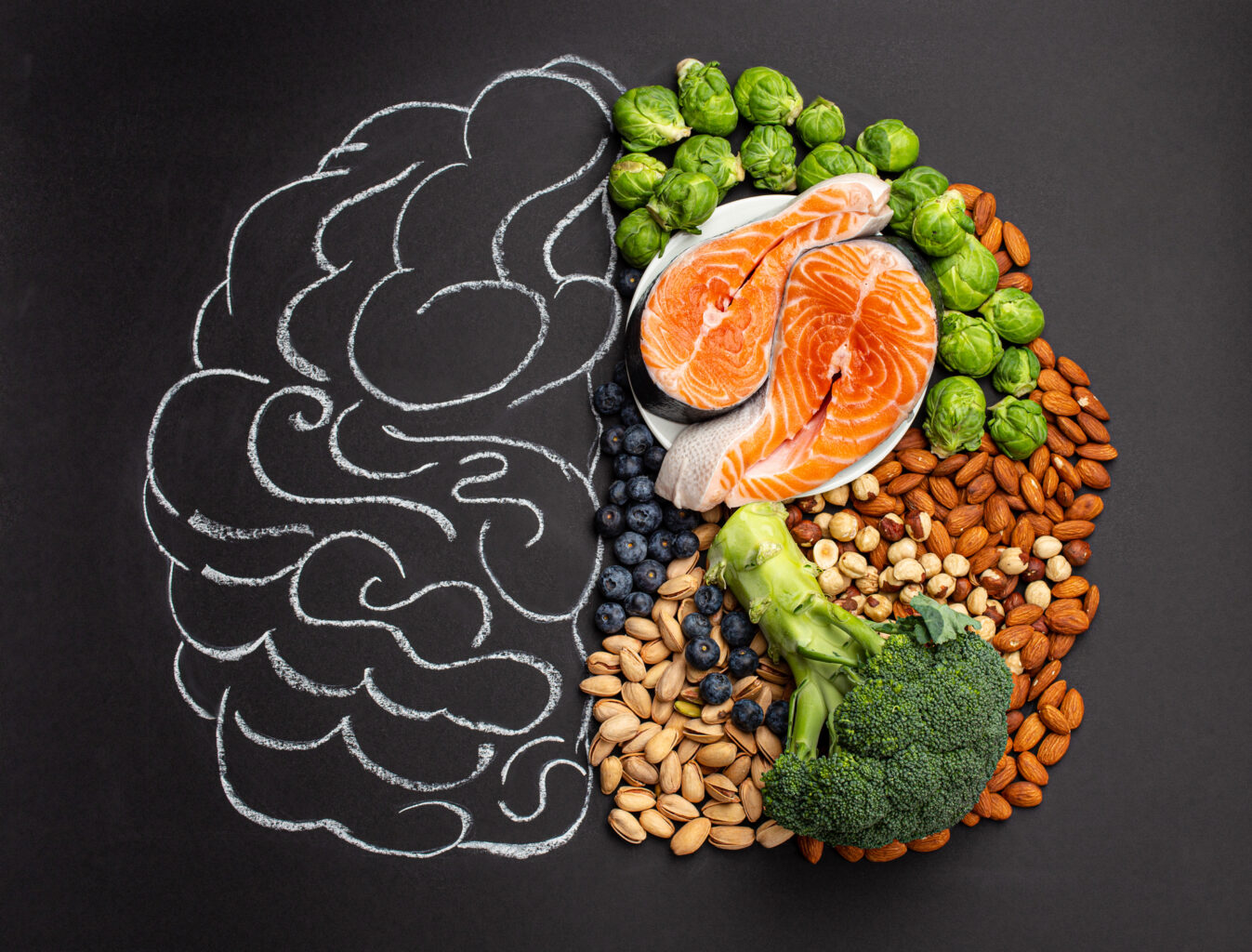
Key Takeaways
-
Not all fruits are created equal — and the way you consume them (fresh vs. processed) determines their effect on brain health.
-
Processed fruits in syrup, juices, or “healthy” dried chips are loaded with sugars and additives that increase inflammation and accelerate brain aging.
-
Even natural fruits, when overripe or consumed excessively, can lead to glucose spikes that cause mental fog, fatigue, and forgetfulness.
-
Whole, fiber-rich fruits like berries, apples, and avocados nourish and protect neurons, enhancing focus and memory retention.
-
Strategic combinations, like pairing fruit with protein or healthy fats, slow down sugar absorption and support long-term cognitive vitality.
The 5 Fruits to Avoid If You Want a Sharper Mind
1. Fruit Cocktails in Syrup: The Hidden Sugar Trap
They look colorful, convenient, and “healthy.” Many older adults enjoy these little cups with breakfast or medication, assuming they’re getting vitamins. In reality, those syrup-filled cups are sabotaging your brain’s performance every single day.
The culprit isn’t the fruit — it’s the syrup. That thick, sticky liquid is pure concentrated sugar, flooding your bloodstream within minutes. Over time, repeated sugar spikes trigger insulin resistance and chronic inflammation, two of the strongest predictors of cognitive decline and Alzheimer’s disease.
Even labels claiming “in its own juice” or “no added sugar” can be misleading. These canned fruits are still ultra-processed, stripped of fiber and nutrients, and preserved with additives that may harm your neurons.
Better choice: Replace fruit cocktails with fresh fruit (washed and eaten whole). The natural fiber helps slow sugar absorption, providing steady energy to your brain. Or better yet, use the Brain-Detox Smoothie recipe below as your daily vitamin-packed upgrade.
2. Fruit Juices: The Sugary Illusion of Health
Fruit juice — even 100% “natural” or homemade — is one of the most misunderstood health foods. While it contains vitamins, it’s missing the fiber that naturally balances fruit sugar. Without fiber, that sugar rushes directly into your bloodstream, sending your brain on a glucose rollercoaster.
These constant highs and lows in blood sugar cause mental fatigue, poor focus, and memory lapses. Over time, studies show that regular juice consumption may actually shrink the hippocampus — the area of your brain responsible for learning and memory.
Think about it: you’d never eat four oranges at once, but one glass of juice contains the sugar equivalent of three to four whole fruits. Your pancreas, liver, and brain simply aren’t equipped for that overload, especially after 50 when metabolic function naturally slows.
Better choice: Eat your fruit whole, or mix it into smoothies with greens and fiber sources like chia seeds or oats. This stabilizes blood sugar and nourishes your brain instead of exhausting it.
3. Dried or Dehydrated Fruits: Nature’s Candy in Disguise
Dates, raisins, figs, and dried mango slices might look like healthy snacks, but they’re essentially concentrated sugar bombs. When water is removed, the natural sugars — along with any residues from processing — become highly concentrated.
Many commercial dried fruits also contain preservatives like sulfur dioxide, which can interfere with minerals vital for brain repair, including magnesium and zinc. Without these minerals, the brain’s ability to create new neural pathways and manage stress declines.
People who consume dried fruit regularly often notice brain fog, mood swings, and difficulty focusing, not realizing it’s linked to these deceptive “healthy” snacks.
Better choice: Limit dried fruits to small portions, and choose unsweetened, preservative-free versions. Always pair them with nuts or yogurt to slow sugar absorption.
4. Overripe Tropical Fruits: Too Much of a Good Thing
Tropical fruits like mango, pineapple, papaya, and banana are full of vitamins, but they can become problematic when eaten in excess or when overly ripe. As fruit ripens, its starch converts into simple sugars that your body absorbs rapidly — the same as refined sugar.
A single overripe mango can contain the sugar equivalent of several tablespoons of table sugar. Repeated exposure to such glucose spikes can cause mental exhaustion, irritability, and short-term memory lapses.
Bananas with black-spotted skins, for instance, are almost pure sugar. They can cause a quick burst of energy followed by mental fog.
Better choice: Eat these fruits in moderation and pair them with fiber or protein. Try a greenish banana with a spoon of chia seeds, or mango chunks with plain yogurt and walnuts. This slows digestion and keeps your brain fueled steadily.
5. Fruit Chips: The Crispy Brain Saboteur
Fruit chips — those glossy, “all-natural” snacks that line supermarket shelves — might seem harmless, but they’re one of the worst offenders when it comes to brain inflammation.
Most are fried in reheated, oxidized oils such as palm or industrial sunflower oil. These oils generate free radicals and toxic compounds that damage neuron membranes and interfere with communication between brain cells.
To make matters worse, many brands coat the chips in added sugar, syrups, or honey to boost flavor. That combination of burnt fats and sugar is a double assault on your brain, accelerating aging and impairing memory.
Better choice: Skip the packaged chips. Instead, try air-drying or baking your own fruit slices at low temperatures. Or snack on a handful of raw nuts and fresh berries for a brain-boosting alternative.
The 5 Fruits That Nourish and Protect Your Brain
After cutting out the harmful ones, focus on fruits that nourish your neurons, boost circulation, and preserve mental clarity as you age.
1. Blueberries
Nicknamed “brain berries”, blueberries are loaded with anthocyanins — antioxidants that strengthen neuron connections, reduce inflammation, and slow cognitive aging. Studies show regular blueberry intake can improve memory and even reverse early memory decline.
2. Pomegranate
Rich in polyphenols and ellagic acid, pomegranate improves cerebral blood flow and protects brain cells from oxidative stress. Drink unfiltered pomegranate juice or eat the seeds whole for maximum benefit.
3. Apples (with Skin)
Apples contain quercetin, a flavonoid that shields neurons from damage, and soluble fiber that stabilizes blood sugar. Eating one a day supports gut health — and since gut and brain health are linked, your mind benefits too.
4. Kiwi
This vibrant fruit has more vitamin C than an orange and acts as a natural neuroprotective antioxidant. It’s especially effective at neutralizing toxins that contribute to neuron loss. Try eating it with the skin for extra fiber.
5. Avocado
Rich in healthy monounsaturated fats, avocados enhance blood flow and support neurotransmitter function. Just half an avocado a day can boost concentration, emotional balance, and mental energy.
The Ultimate Brain-Detox Smoothie
This isn’t a miracle cure — it’s a science-backed, nutrient-dense drink designed to detoxify your brain, support circulation, and improve mental sharpness.
Ingredients:
-
1 cup water or brewed green tea
-
2 kale leaves
-
1 celery stalk
-
1 red apple (with skin)
-
A handful of blueberries
-
A thumb-sized piece of fresh ginger
Directions:
Blend all ingredients together and drink it unfiltered to retain the fiber. Enjoy it on an empty stomach or between meals.
This combination delivers chlorophyll, antioxidants, magnesium, and natural anti-inflammatories, helping the brain flush out toxins and heavy metals that accumulate over time. Many report feeling lighter, more focused, and mentally clear within weeks.
Conclusion: Choose Smart, Think Clear
Protecting your brain after 50 isn’t about eliminating fruit — it’s about making smarter choices. The difference between a food that fuels your mind and one that fogs it lies in sugar content, processing, and balance.
Skip the canned syrups, juices, and fruit chips. Instead, fill your plate with fiber-rich, antioxidant-packed fruits that stabilize blood sugar and nurture your neurons. Small, mindful swaps — like trading your morning juice for a whole apple or handful of blueberries — can profoundly impact how your brain ages.
Remember: what you eat today becomes your brain tomorrow. Feed it wisely, and it will reward you with clarity, focus, and resilience for decades to come.
News in the same category


❤️ 5 Subtle Signs That May Suggest Heart Trouble – And When to See a Doctor

Eat these 3 foods to strengthen them…

Neckline Wrinkles 5 Tips to Prevent and Eliminate Them

The Reason Some People Keep Lemons on Their Nightstand While Sleeping
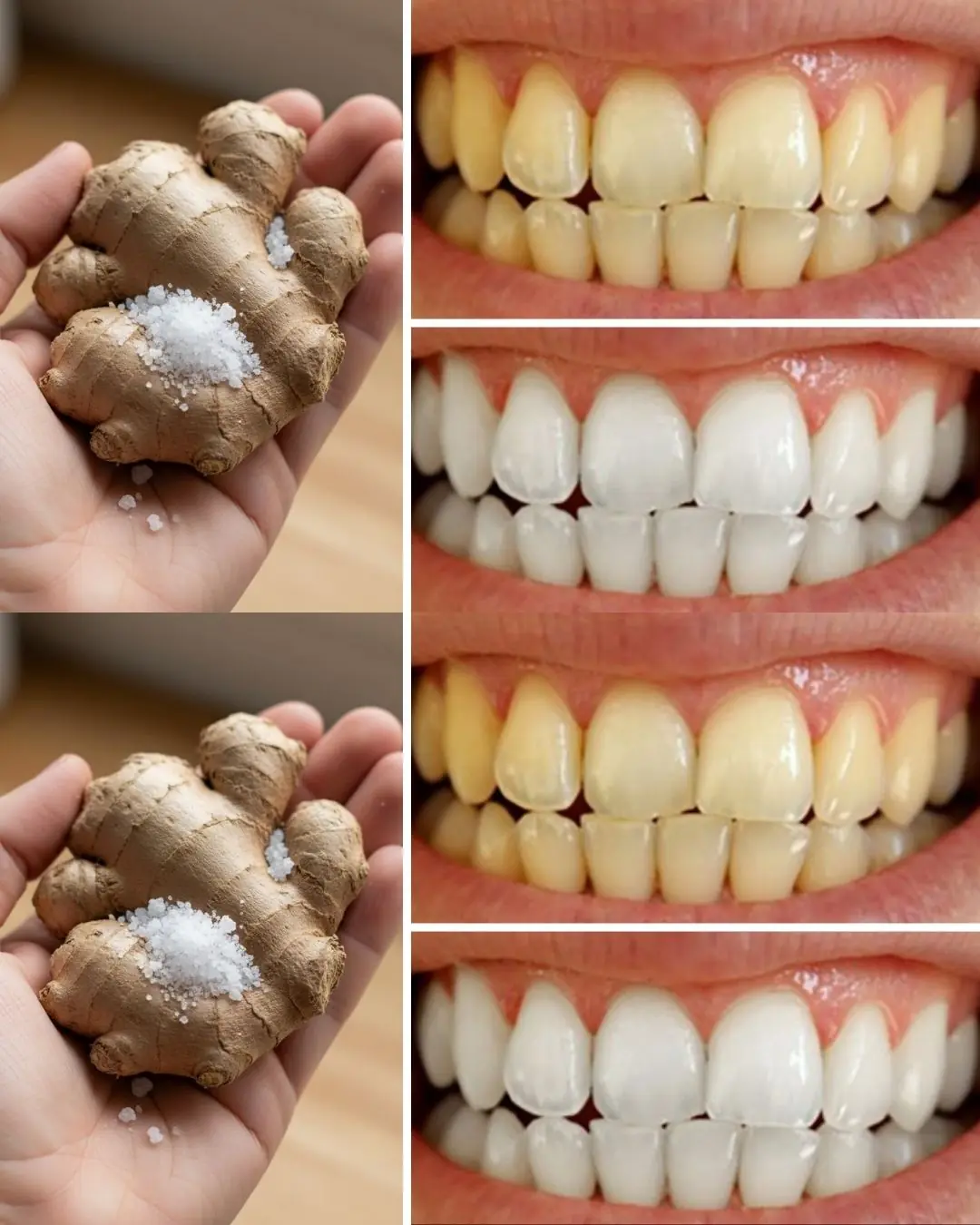
Ginger and Salt Teeth Whitening Remedy

The Pain Most People Brush Off That Signals Serious Trouble

Warning Signs Your Arteries Need Cleansing and The Foods That Do It Best

10 Warning Signs of Low Magnesium Levels and What to Do About It
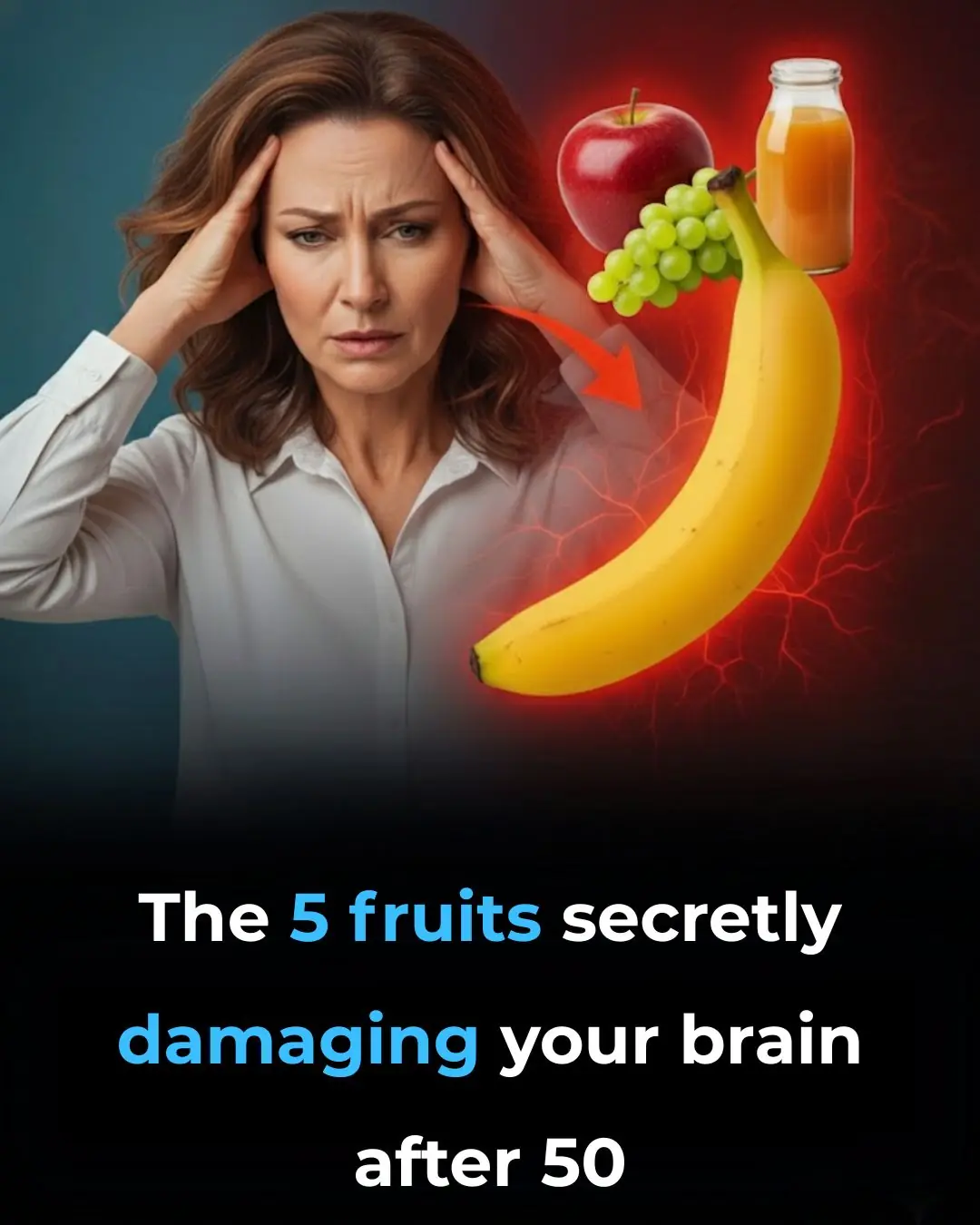
The 5 fruits secretly damaging your brain after 50

The #1 silent sign your kidneys are in trouble (and it’s not your urine)

Why Some People’s Skin Turns Red When Drinking Alcohol

🩺 The #1 Silent Sign Your Kidneys Are in Trouble (And It’s Not Your Urine)

Capsaicin: The Fiery Compound That Stops Heart Attacks and Destroys Cancer Cells

Flush Away the Hidden Toxins Damaging Your Kidneys — With These 13 Powerful Cleansing Foods
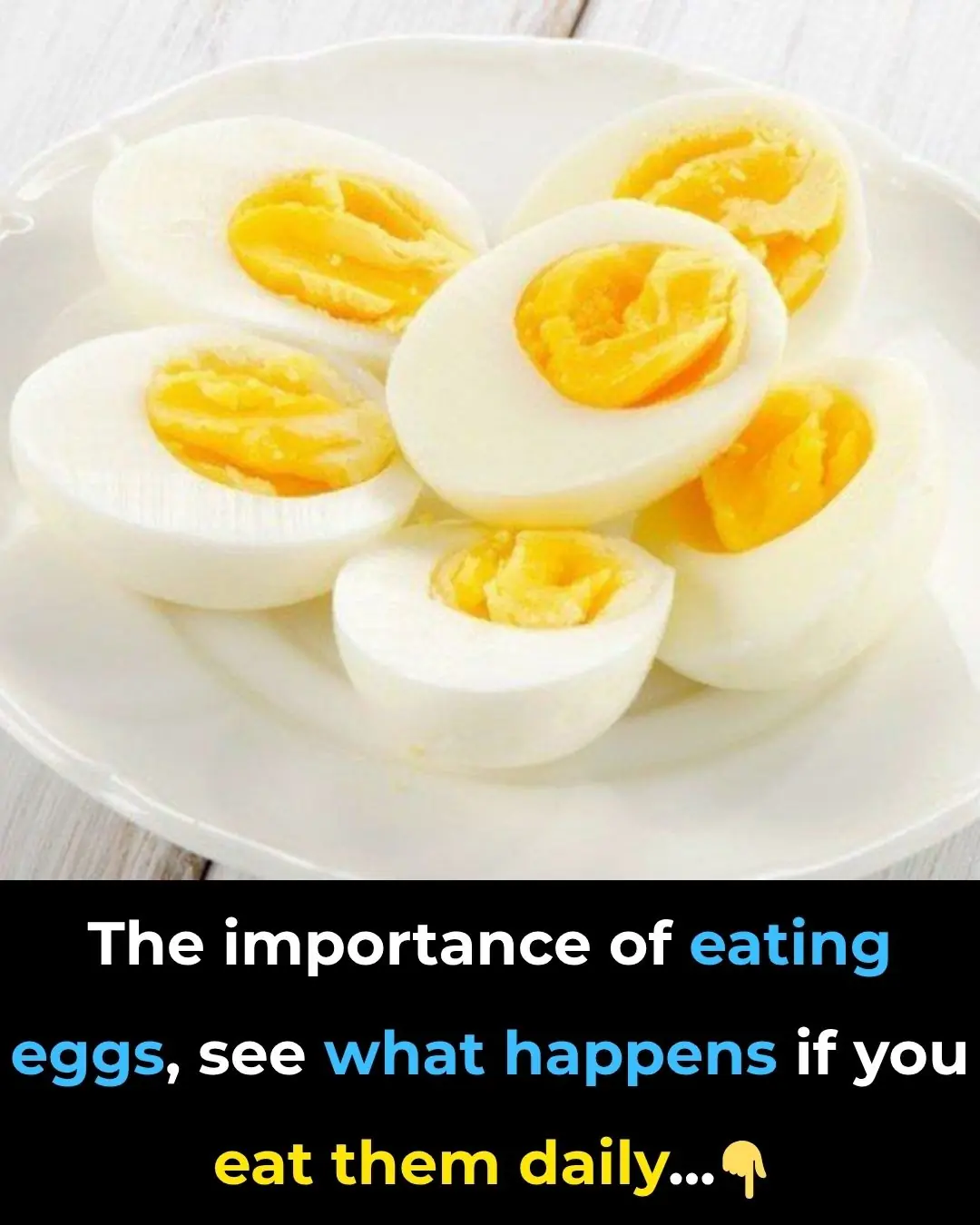
The surprising truth about eating eggs every day

Why You Should Stop Waking Up to Urinate
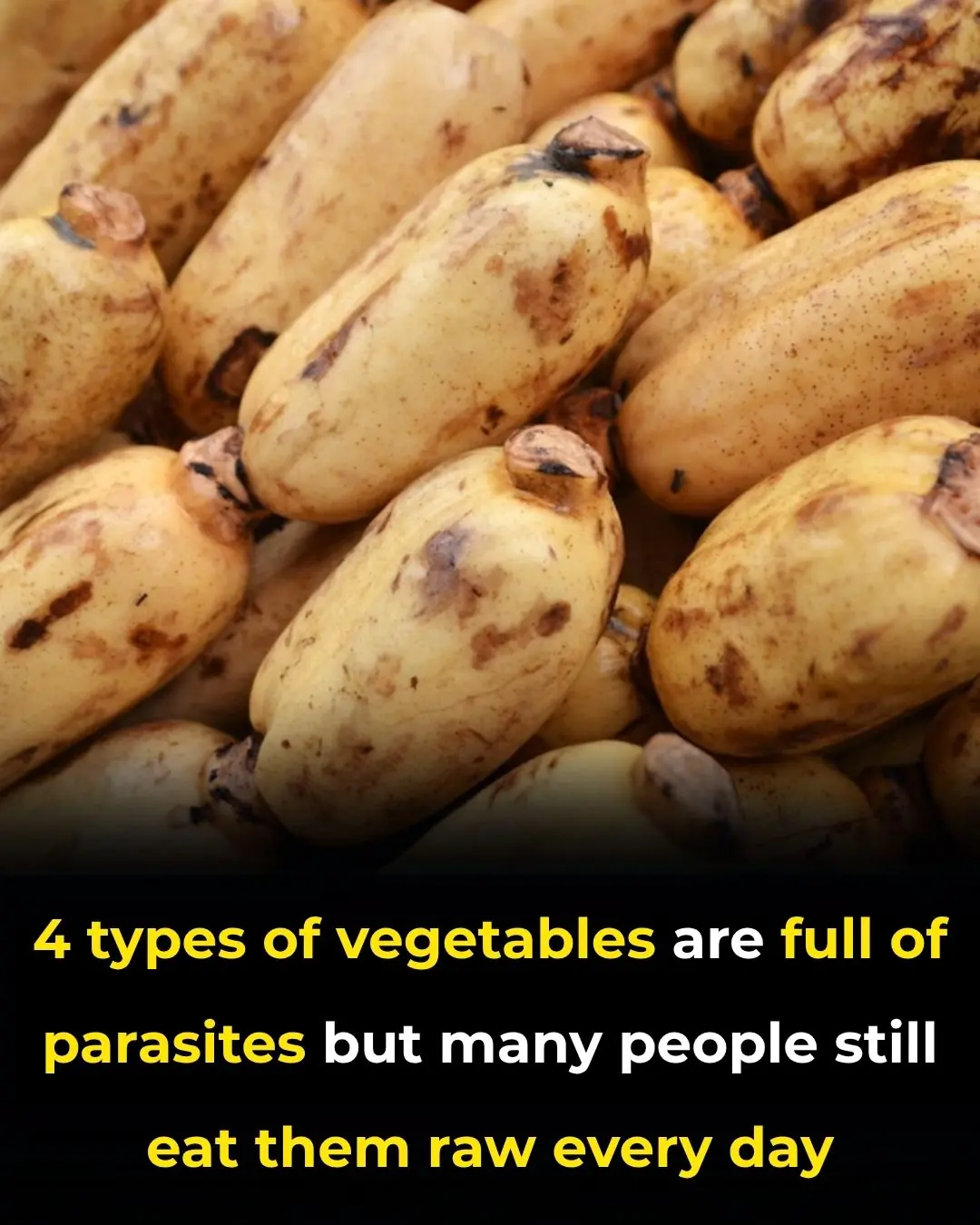
4 types of vegetables are full of parasites but many people still eat them raw every day

Hidden Dangers in Your Mouth: Early Signs of Oral Cancer
News Post

Inserting scissors into the rice bin: A good tip that brings many uses, but who doesn't know it's too wasteful

Burning Sage: What It Is, How to Do It, and Why It Might Help You

5 great foods that should not be stored in the refrigerator - the risk of aflatoxemia that causes cancer

5 Morning Drinks to Boost Kidney Health, Cool the Liver, and Detoxify Your Body

A Simple Sponge Trick For The Fridge

How to Get Rid of Termites That Bore Into Wooden Doors — Protect Your 10-Year-Old Furniture and Keep It Beautiful

According To This Psychologist, A Dirty Car Can Reveal A Lot About Your Personality

Most drivers don't know the purpose of the car door hook

What Kind of Bread Are You

Most people don't know the meaning of wearing an ankle bracelet
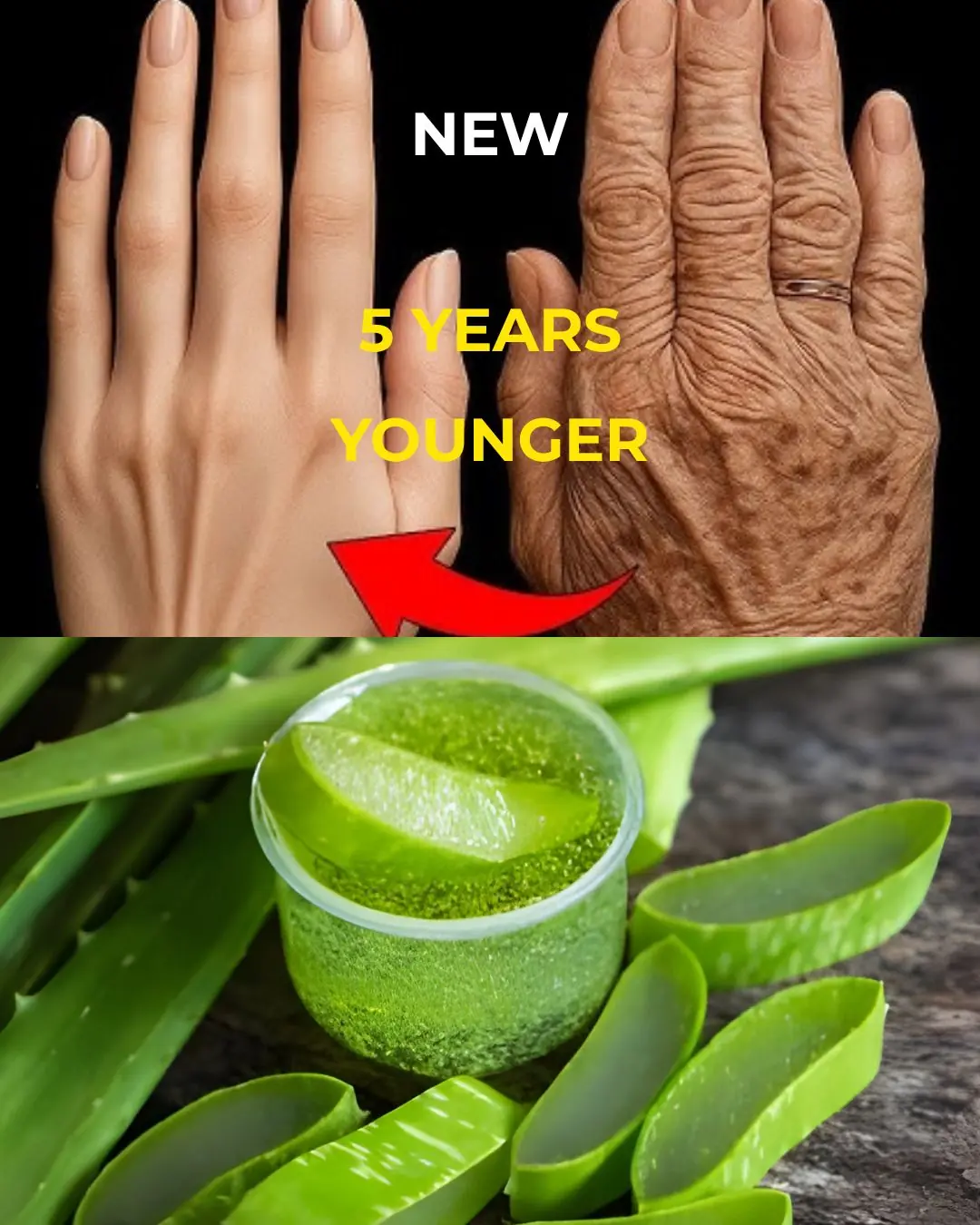
My Grandmother Looks 35 at 67 – Her Secret? Collagen + Aloe Vera Clever Tricks

What Clutter and Neglect Might Be Saying

Anti-Inflammatory Power: Relieve Joint Swelling and Bone Pain with Prickly Pear (Nopal) Water 🌿💧

Why the “Good Side” of Your Fence Should Face Your Neighbor

❤️ 5 Subtle Signs That May Suggest Heart Trouble – And When to See a Doctor

Eat these 3 foods to strengthen them…

Neckline Wrinkles 5 Tips to Prevent and Eliminate Them

Smart Ways to Fade Freckles and Reveal a More Even, Radiant Skin Tone

Everyday Emergencies: Small First-Aid Tricks That Could Save a Life
